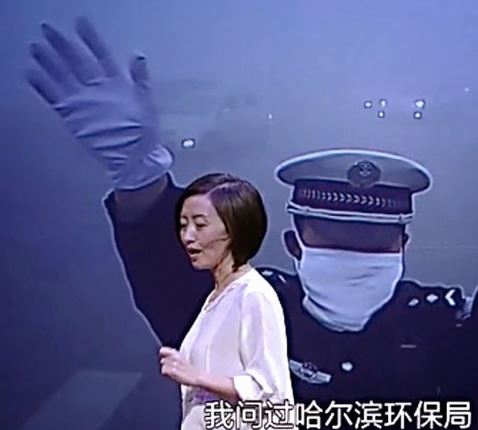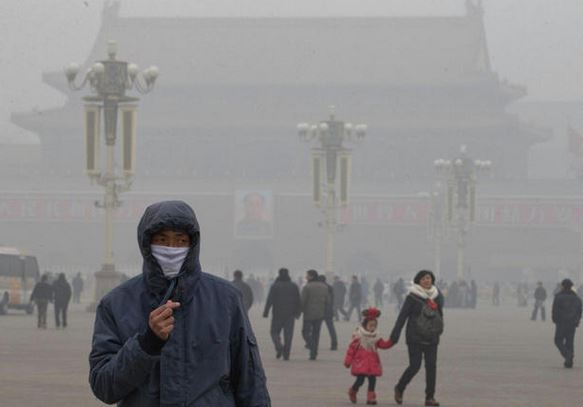An online documentary by celebrity journalist Chai Jing about the devastating human cost of pollution in China brought a strong response from Chinese censors within a few days of going viral, but not before over 200 million people had watched it.
The documentary – “Under the Dome” – was released on the Internet last week and spread like wildfire, sparking criticism of the Chinese government across the country.
Ms. Jing highlights people most at risk or worst affected by the country’s dangerous pollutants, including villagers in Shaanxi province, whose environment was engulfed by smoke from nearby coal plants. She quotes a six-year old girl who says she has never seen blue sky.

Chai Jing’s documentary was watched by more than 200 million people within six days.
The film shows several factories breaching regulations, while authoritative figures speak openly, confessing that rules are commonly ignored, claiming that punishment costs people jobs and undermines growth.
Initially, the documentary appeared to have the backing of the Government, with many officials comparing it to Al Gore’s “An Inconvenient Truth”. The producers received a text message from Chen Jining, China’s environment minister, a respected UK-educated academic, congratulating them for bringing the problem to the fore.
Official tolerance did not last long
However, by Friday the official mood had taken a complete U-turn, with Beijing’s censors erasing all trace of Under the Dome from websites across the country.
By Friday evening the video was nowhere to be seen in China, including top video websites Tudou and Youku.
According to the Financial Times, a Shanghai newspaper employee was suspended for allegedly leaking a “secret propaganda directive” ordering Chinese media outlets to stop mentioning or broadcasting Under the Dome.
The general public took a dim view of the Chinese censors’ move. The Telegraph quoted one user of China’s Twitter equivalent Weibo, who wrote:
“In this country, there is too much that cannot be talked about. Chai Jing’s film made some government departments very uncomfortable and today… it was completely blocked. What are you afraid of?”

By Friday evening, all traces of the documentary had gone from Chinese websites, but pollution in Beijing came back with a vengeance.
Hopes of a renaissance dashed
During the first few days after the film came out, apart from criticism of the government and shock at some of the facts revealed, there was also a feeling of hope and excitement that perhaps China was entering a new era of openness and frank public debate.
Li Keqiang, Premier of the People’s Republic of China, said on Thursday:
“Environmental pollution is a blight on people’s quality of life and a trouble that weighs on their hearts. We must fight it with all our might.”
As Under the Dome vanished from all China’s websites by Friday evening, smog levels in the capital Beijing soared. Residents were advised by the authorities to wear facemasks when venturing out of their homes.
Yuan Ren, who lives in Beijing, wrote in the Guardian:
“Chai’s documentary has empowered China’s online community to wake up to the dangers of pollution and voice solidarity over this national headache. For three days straight, it was the only topic on China’s social media platforms.”
Video – Under the Dome
